Bidi Wungen Kaat Centre
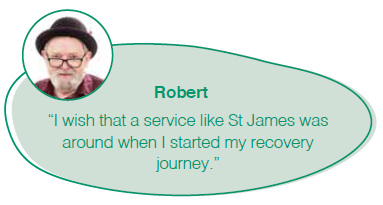 Bidi Wungen Kaat Centre is an evidence-based, innovative approach to mental health care delivered by the East Metropolitan Health Service (EMHS) in St James, within the Town of Victoria Park. The 40-person residential service will provide contemporary staged recovery support for people experiencing mental health issues - offering transitional care between the hospital setting and community living.
Bidi Wungen Kaat Centre is an evidence-based, innovative approach to mental health care delivered by the East Metropolitan Health Service (EMHS) in St James, within the Town of Victoria Park. The 40-person residential service will provide contemporary staged recovery support for people experiencing mental health issues - offering transitional care between the hospital setting and community living.
- Up to 40 consumer residents will call Bidi Wungen Kaat Centre home for between two weeks to around six months.
- The service will support adults experiencing mental health issues aged between 18 to 64 years to return to participating and contributing within their communities.
- Residents will be focussing on individual recovery goals to support independent living, work and/or study.
- Bidi Wungen Kaat Centre is now open.
- Lived experience consumer and carer representatives have assisted in the co-design of this service. They are extremely supportive of this much needed mental health recovery accommodation.
- WA's first mental health transitional care unit to open in St James.
"Empowerment can be found when you’re given the space to take the driver’s seat of your own recovery journey. Being a peer and having accessed mental health services myself, I am grateful to be a part of this fantastic step forward for the future of mental health service delivery. Valuing the voices and expertise of those of us with lived experience is significant in creating safe spaces for people accessing support. Recovery is discovering what works for you and this is the perfect place to explore that." - Peer practitioner, Ash.
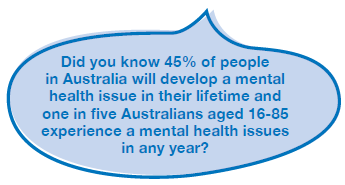 Anyone can develop a mental health issue
Anyone can develop a mental health issue
The most common mental health issues are depressive disorder (depression), anxiety, and substance use disorder.
Significantly, not everyone seeks treatment. In fact, the number of people accessing help for mental health issues is half that for people with physical disorders.
Did you know?
Anxiety
- Anxiety is the most common mental health condition in Australia. According to Beyond Blue, every year 14% of Australians are affected by an anxiety disorder.
Bipolar Disorder
- 1-4% of Australians are affected by Bipolar Disorder at some point in their lifetime. It is a common mental illness that affects someone’s ability to manage their emotions and impulses.
Depression
- Every year 4% of Australians are affected by depression, some of whom are treated by psychological therapy, medication, and community support.
Obsessive Compulsive Disorder (OCD)
- OCD affects 1-2% of Australians and while severity varies between each person, OCD can be a very debilitating disorder.
Post-Traumatic Stress Disorder (PTSD)
- More than 10% of people living in Australia will experience PTSD in their lifetime.
- In Australia, serious car accidents are the leading cause of PTSD, however people who have experience of repeated and deliberate harm such as sexual or physical abuse are more likely to develop the disorder.
Almost half of the population will experience a mental health issue in their lifetime, and one in five people have experienced a common issue such as anxiety in the previous 12 months.
Many people experiencing mental health issues can be faced with a shortage of transitional care services after hospitalisation, when returning back to their lives in the community. At the same time, other people who are currently living in the community and experiencing mental illness are missing out on the support they need. Ultimately, this increases the pressure on our hospitals and limits the care which can be provided.
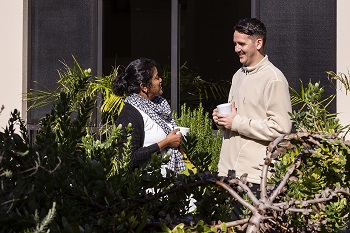 The Bidi Wungen Kaat Centre is an innovative approach to mental health care by the Western Australian government.
The Bidi Wungen Kaat Centre is an innovative approach to mental health care by the Western Australian government.
It will provide an urgently needed residential service for mental health consumers, while supporting them to return to participating and contributing to their communities. The unique program focusses on meaningfully engaging with and contributing to the community. This includes return to work activities and volunteering.
Community-based care options are shown to provide better long-term outcomes in consumer’s mental health recovery journey.
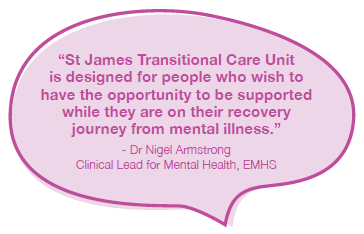 Mental health issues are widespread in Australia and have lasting and significant impacts for individuals, families and communities. Western Australia has a long-standing shortage of appropriate facilities for people experiencing mental health issues requiring transitional care. We want to ensure that people are able to get the care they need in a timely manner, in the most appropriate setting.
Mental health issues are widespread in Australia and have lasting and significant impacts for individuals, families and communities. Western Australia has a long-standing shortage of appropriate facilities for people experiencing mental health issues requiring transitional care. We want to ensure that people are able to get the care they need in a timely manner, in the most appropriate setting.
Currently, many people experiencing mental health issues spend more time in hospital than required, and others living in the community are missing out on the support they need.
Specialist community recovery and transitional services have been operating nationally and internationally for many years, with positive outcomes for both residents and local communities. Social support systems provide additional assistance to access the skills, training and recovery opportunities that people need to return to work and a fulfilling family and community life.
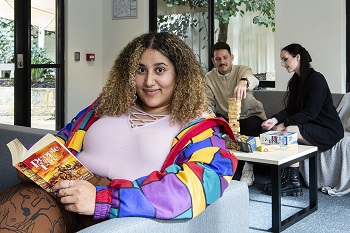 The service will accommodate up to 40 adults aged 18-64 years. It will offer residential mental health staged recovery services for those experiencing mental health issues.
The service will accommodate up to 40 adults aged 18-64 years. It will offer residential mental health staged recovery services for those experiencing mental health issues.
Consumer residents will work on individual recovery goals needed for independent living, work and/or study. Consumers are expected to be on-site for two to four weeks, with longer stays for approximately six months.
Works on the building have been completed, and were done to make the facility fit-for-purpose. The building footprint has not been altered.
Now the building is complete and the service is open, measures have been put in place to minimise any potential increased traffic flow around the facility.
These include restricted visiting hours limited to evenings and on weekends. A new one-way traffic management layout with pick-up / drop-off zones will improve onsite traffic flow. Dedicated visitor parking and staff parking bays have also been allocated, and there is convenient access to public transport links.
Bidi Wungen Kaat Centre is a community-based model of care staffed by specialised mental health clinicians and a peer support workforce. It will have strong links with the local community, hospital and community-based mental health services, and primary health care, to ensure continuity of care for consumer residents.
The service will be recovery-focused and person-centred. It represents a fundamental shift from treating symptoms to coaching people to develop a life of meaning and purpose for themselves.
It fills an important gap in supporting residents with mental health issues who may require additional supports to transition home from hospital admission or to help them stay in the community and avoid emergency department presentation or hospital admission.
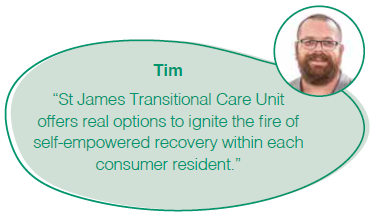 The community should not expect any significant changes compared to the site’s previous use when it was a residential aged care facility.
The community should not expect any significant changes compared to the site’s previous use when it was a residential aged care facility.
Bidi Wungen Kaat Centre will be staffed 24/7 by skilled mental health clinicians and peer support workers to ensure the consumer residents have appropriate levels of support at all times.
Security staff will undertake regular surveillance of the building.
We anticipate that having consumers recovering from mental health issues living locally will promote social acceptance and inclusion.
We urge the community to embrace the new purpose of what was previously an aged care facility, to now providing care to another important social group in our community.
Bidi Wungen Kaat means ‘Journey to a healthy mind’ in the local Noongar language, with the name adopted following consultation with Aboriginal community representatives in the East Metropolitan Health Service area.
The service is open to everybody, Aboriginal and non-Aboriginal, and recognises the rich Aboriginal heritage of the land on which we work and live.

